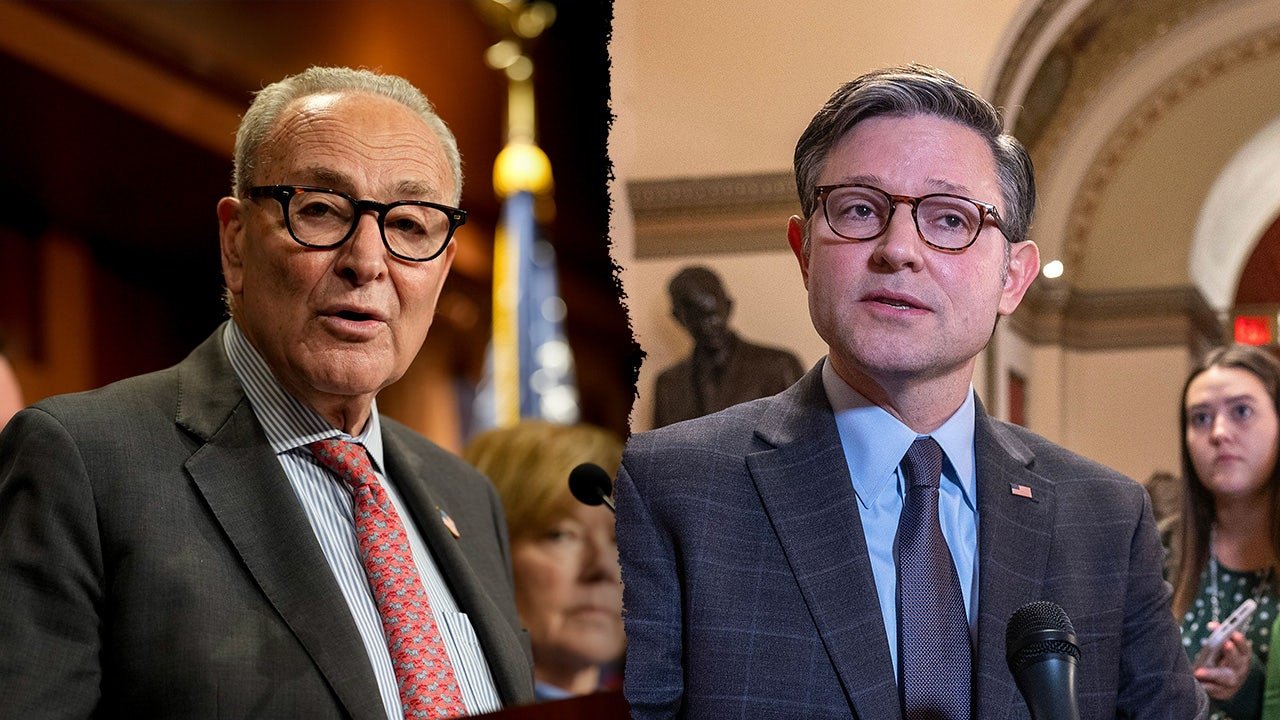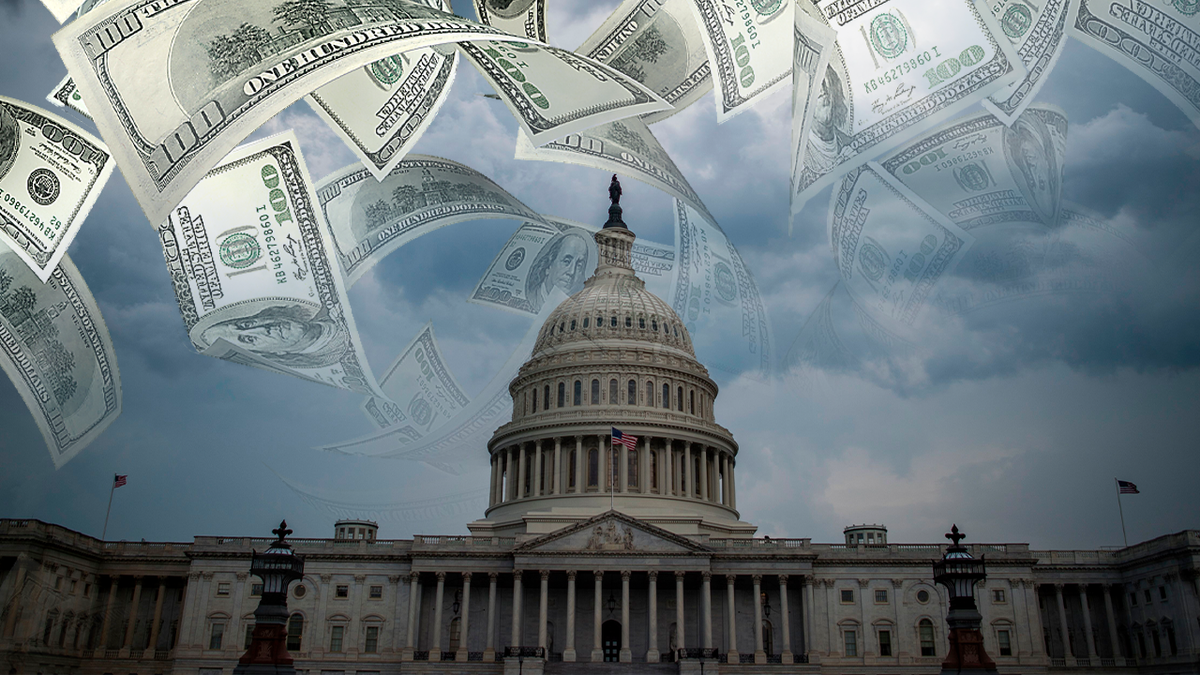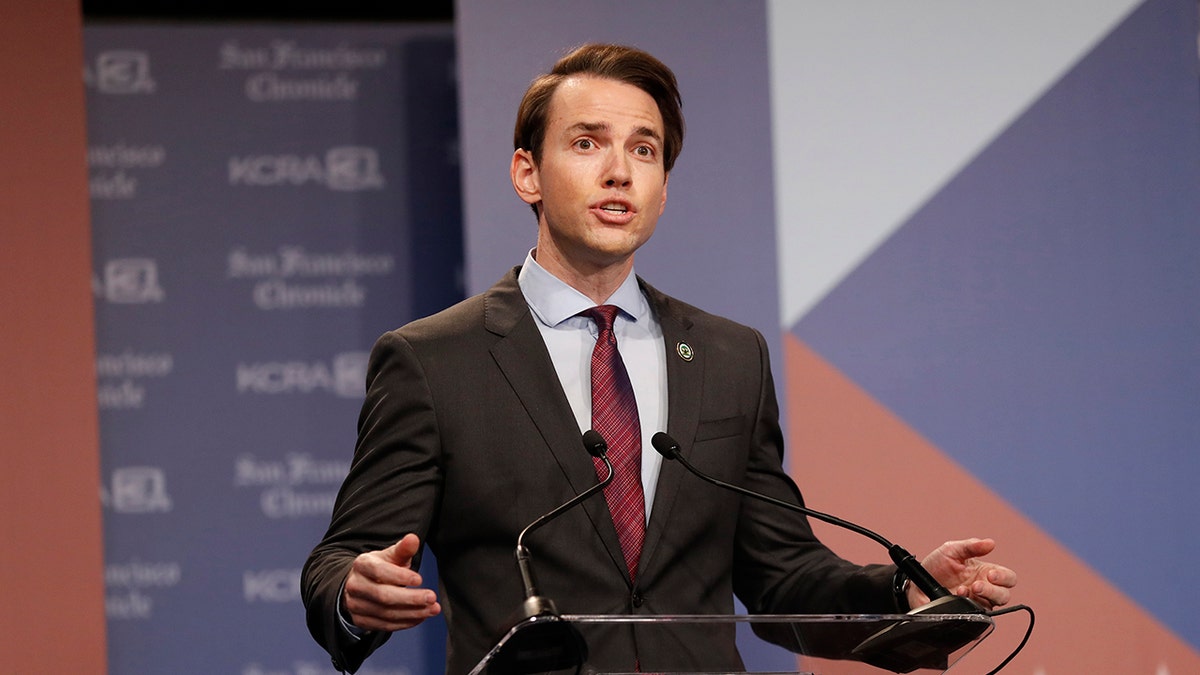INTERNACIONAL
Se estrena “Viva la Libertad”, una creación de Lalo Schifrin que resuena en la era Milei

Del “grito sagrado” en el Himno Nacional a la dictadura autodenominada Revolución Libertadora. De los libertarios anarquistas de principio del siglo XX a los anarcocapitalistas de La Libertad Avanza. Del “¡Libres o muertos, jamás esclavos!” de la guerrilla setentista al “¡Viva la libertad, carajo!” de Javier Milei. Hay una larga línea zigzagueante que recorre la historia argentina. La idea es la misma, una promesa: redención. Y sigue, no se detiene: por estos días, en el Palacio Libertad (ex CCK), un grupo nutrido de músicos de primer nivel ensaya una pieza que quiere marcar un hito. Se titula ¡Viva la libertad! Los compositores son Lalo Schifrin y Rod Schejtman.
Con la tutela oficial del secretario de Cultura Leonardo Cifelli, y el eslogan de “Música para quienes jamás se rinden”, la Orquesta Sinfónica Nacional (dirigida por Emmanuel Siffert) dará dos conciertos en el centro cultural del centro porteño este fin de semana: viernes y sábado a las 20. El programa incluye The Plot de Misión: Imposible, Dirty Harry Suite, Bullitt, Mannix, Cincinnati Kid y La Magia di Vivere —las primeras y muy famosas mundialmente obras de Schifrin, la última de Schejtman—, un intermedio con fragmentos de un documental sobre los compositores , y la esperada creación conjunta: Sinfonía ¡Viva la Libertad!.
Los tintes partidarios y oficialistas pueden resultar evidentes, pero los creadores se desligan de cualquier etiqueta. Evitan hablar de “sinfonías mileistas” para centrar su retórica —incluso al estilo Milei— en una refundación nacional, pero desde el arte y la cultura. “No es para algunos argentinos. La compusimos para todos los argentinos”, asegura Schifrin desde Los Ángeles. Y subraya el objetivo unificador: “Un mensaje de esperanza musical para el país que amamos”. “Escribimos esta sinfonía dedicada a todos los argentinos, sin distinción”, agrega Schejtman a días del estreno de una obra que busca ser inolvidable.

Fue el año pasado cuando Lalo Schifrin llamó a Rod Schejtman. Había escuchado con mucha atención las composiciones para el WorldVision Composers Contest de Viena, conocido como el “Mundial de la Música Clásica”. “Fue una conversación inolvidable, casi surrealista”, recuerda el compositor argentino de cuarenta años. No es para menos: Schifrin —cinco Grammys, cuatro Emmys, seis nominaciones al Oscar y uno honorario, y una estrella con su nombre en el Paseo de la Fama de Hollywood— no sólo le brindaba elogios, también una oferta. “Le propongo que seamos socios y compongamos una gran obra juntos dedicada a la Argentina”, fueron las palabras del otro lado de la línea.
En los 92 años de vida que ostenta Boris Claudio Schifrin se incluyen postales como estas: tocar el piano a los seis años, estudiar en el Nacional Buenos Aires, participar de la bohemia francesa del jazz durante los cincuenta, ser el director musical de Dizzy Gillespie en los sesenta, componer bandas sonoras de películas como Harry el sucio, La leyenda del indomable y El viaje de los malditos, y ser mundialmente conocido —toda estrella tiene su hit— por componer la popular melodía de Misión Imposible. Una deuda pendiente: la música clásica. “Venga a Los Ángeles”, fue el pedido.

Desconcertado, le pidió una idea, una melodía, algo. Schifrin le tarareó ocho segundos de algo que venía zumbándole desde hacía tiempo. “Cuartas superpuestas”, añadió. “Desde el instante en que transcribí esa melodía en mi piano, supe que había nacido para ser interpretada por una gran sección de violines. Pensé entonces: si esta obra ha de rendir homenaje a la Argentina, debe ser grandiosa e imponente. Merece ser escrita para una orquesta sinfónica completa. Tomé esos ocho segundos iniciales, los desarrollé aplicando técnicas del repertorio clásico, y escribí un fragmento sinfónico de tres minutos, concebido para cien músicos”, cuenta Schejtman.
Rod Schejtman aterrizó en Los Ángeles con la partitura en el bolso. El estudio de Schifrin no escamoteaba rincones para ostentar sus reconocimientos. Pusieron play. El veterano compositor le pidió a su asistente que llame a su esposa para escucharla nuevamente con ella. “A partir de ese momento comenzamos a trabajar codo a codo. Pero componer junto al Maestro Schifrin fue mucho más que un proceso creativo: significó adentrarme en su mundo personal, compartir sus recuerdos, su visión artística, y recorrer su trayectoria a través de anécdotas y experiencias”, cuenta.

“Veíamos juntos fragmentos de sus películas, y él me confiaba los secretos de la técnica musical que había utilizado para cada escena. También fue profundamente revelador descubrir la cantidad de afinidades musicales que compartíamos, a pesar de la diferencia de medio siglo entre nosotros. Schifrin profesa una profunda admiración por Stravinsky y Olivier Messiaen —quien, por cierto, fue su maestro directo—, y comparte mi devoción por los grandes románticos como Chopin y Rachmaninoff, sin dejar de lado, por supuesto, su inquebrantable pasión por el jazz», agrega.

Cuando Infobae Cultura le pide una opinión sobre el presidente Javier Milei y la inevitable conexión entre el título de la pieza y la proclama arquetípica del actual gobierno, Schifrin esquiva el asunto. “La obra no necesita explicación. Es arte. Lo importante es que la escuchen y sientan lo que transmite nuestra música. Es una obra musical. Es mucho más que un título. Es la fusión de dos compositores argentinos, volcando su alma en notas para su país. Nuestro propósito fue componer una obra que lleve un mensaje de esperanza a toda la Argentina. Ojalá hayamos logrado expresar el coraje y la resiliencia del pueblo argentino: su capacidad de atravesar tiempos difíciles con alegría y optimismo”.
Su compañero creativo opta por una posición similar al escuchar el nombre del actual mandatario. “La libertad, como concepto, va mucho más allá de cualquier coyuntura política: es una fuerza que inspira, que moviliza el alma, y que tiene un eco muy profundo en el arte”, dice Schejtman, para luego agregar que “quienes nos dedicamos a la creación artística —más allá de estilos, lenguajes o fronteras— aspiramos a nutrir el espíritu humano, volcando lo más auténtico de nuestro ser en cada obra. Y no hay gesto más significativo que crear desde el amor por la tierra que nos vio nacer”.

Desde su casa en Los Ángeles, y por medio de Schejtman, Lalo Schifrin responde a las preguntas de Infobae Cultura. Cuenta que al saber que su colega y compatriota quería hacer la obra con él se “emocionó profundamente”. “Ese fue el punto de partida. Me emocioné. Y cuando yo me emociono, surgen mis ideas. El hecho de poder componer una obra dedicada a la Argentina junto al Maestro Schejtman me dio un gran entusiasmo y me hizo sentir nuevamente la necesidad de escribir. Y ese entusiasmo nació gracias a él. Él fue la razón por la que pudimos terminar esta sinfonía en tan solo seis meses”.
“El estreno de esta sinfonía representa lo más importante en este momento de mi vida. Estoy seguro de que la Orquesta Sinfónica Nacional hará una interpretación increíble. Tengo muchos recuerdos hermosos de esta orquesta, que también fue muy importante para mi padre, Luis Schifrin“, y luego confiesa ”una profunda nostalgia por la Argentina», y que “la música es mi forma de volver”. La obra, dice, “no es para algunos”: “La compusimos para todos los argentinos. Un homenaje a nuestro país y a nuestro espíritu de resiliencia. Un mensaje de esperanza musical para el país que amamos”.

Schejtman comparte la idea: “Desde hace siglos, los compositores buscamos inspirar. La música siempre refleja su tiempo: lo bueno y lo doloroso, la luz y la sombra”. Ambos comparten “no solo la pasión por nuestro arte, sino también un profundo amor por nuestro país”. Por tal motivo “escribimos esta sinfonía dedicada a todos los argentinos, sin distinción. Una creación que nace del amor por nuestra tierra y del deseo sincero de rendir homenaje a nuestra gente. Y, por encima de todo, buscamos dejar un legado de : que la música nos recuerde siempre que lo mejor siempre está por venir”.
[Fotos: Adrián Escandar]
INTERNACIONAL
Johnson shuts down House to pressure Schumer as government standstill nears one month

Sen. Lankford proposes bill to avoid government shutdowns
Fox News senior congressional correspondent Chad Pergram and Sen. James Lankford, R-Okla., join ‘The Faulkner Focus’ to discuss the failed vote to pay federal workers amid the government shutdown as they enter their first week without pay.
NEWYou can now listen to Fox News articles!
Speaker Mike Johnson, R-La., has canceled votes in the House of Representatives for a fourth straight week as the government shutdown shows no signs of ending.
Johnson’s move is a part of his continued pressure strategy on Senate Democrats and Minority Leader Chuck Schumer, D-N.Y., who have sunk the GOP’s federal funding plan 12 times since Sept. 19, when the House passed the measure.
Sept. 19 was also the last day the House was in session, meaning lawmakers have been largely in their home districts for over a month.
Republicans are pushing a short-term extension of fiscal year (FY) 2025 spending levels through Nov. 21 — called a continuing resolution (CR) — aimed at giving congressional negotiators time to strike a longer-term deal for FY2026.
SCREAMING MATCH ERUPTS BETWEEN HAKEEM JEFFRIES, MIKE LAWLER AS GOVERNMENT SHUTDOWN CHAOS CONTINUES
House Speaker Mike Johnson, right, is canceling House votes to pressure Senate Minority Leader Chuck Schumer, left, for refusing to agree to a GOP-led plan to avert a government shutdown. (Kent Nishimura/Bloomberg via Getty Images; Tasos Katopodis/Getty Images)
Democrats, furious at being sidelined in federal funding discussions, have been withholding their support for any spending bill that does not also extend COVID-19 pandemic-era enhanced Obamacare subsidies that are due to expire at the end of this year.
Johnson’s decision was made public on Friday afternoon during a brief pro forma session in the House. Under rules dictated by the Constitution, the chamber must meet for brief periods every few days called «pro forma» sessions to ensure continuity, even if there are no formal legislative matters at hand.
Pro forma sessions can also be opportunities for lawmakers to give brief speeches or introduce legislation that they otherwise would not have.
Democrats have criticized Johnson’s decision, with House Minority Leader Hakeem Jeffries, D-N.Y., telling reporters that House Republicans have been «on vacation for the last four weeks.»

The government is in a shutdown after Congress failed to reach an agreement on federal funding. (Getty Images)
Republicans, however, have largely stayed united behind Johnson as the shutdown continues.
«I mean, if all of a sudden the Senate wants to pass a clean CR, I would imagine there are some options on the table that we can pursue to get things back on track,» said Rep. Adrian Smith, R-Neb., who presided over the House chamber on Friday.
«I would defer, ultimately, to [leadership’s] decisions for the schedule. But right now, I don’t see any sign that we need to change what has been on the counter.»
But there have been several notable defections. Both Reps. Kevin Kiley, R-Calif., and Marjorie Taylor Greene, R-Ga., have made their criticism of Johnson’s strategy known publicly for weeks.
«I believe very strongly that it’s the wrong decision,» Kiley told MSNBC earlier this week, adding House lawmakers were not «doing all the things we’re supposed to be doing» aside from figuring out how to end the shutdown.
BATTLEGROUND REPUBLICANS HOLD THE LINE AS JOHNSON PRESSURES DEMS ON SHUTDOWN

Rep. Kevin Kiley, seen in August 2023, has been critical of Johnson’s shutdown strategy. (Scott Strazzante-Pool/Getty Images)
CLICK HERE TO GET THE FOX NEWS APP
Multiple House lawmakers have also raised concerns about being out of session on private weekly calls that Johnson holds with members of the GOP conference.
Rep. Beth Van Duyne, R-Texas, was the most recent House Republican to suggest the GOP could be in a stronger position if they were back in Washington, Fox News Digital was told.
«I think the longer that we are out, the messaging is starting to get old,» Van Duyne told fellow House Republicans on their Tuesday call.
house of representatives politics,mike johnson,politics,chuck schumer
INTERNACIONAL
US deploys Ford carrier strike group to combat narco-terror in Western Hemisphere

NEWYou can now listen to Fox News articles!
The Trump administration has ordered the deployment of the Gerald R. Ford Carrier Strike Group in the Western Hemisphere as the U.S. continues to target suspected drug smuggling vessels in the Caribbean.
«In support of the President’s directive to dismantle Transnational Criminal Organizations (TCOs) and counter narco-terrorism in defense of the Homeland, the Secretary of War has directed the Gerald R. Ford Carrier Strike Group and embarked carrier air wing to the U.S. Southern Command (USSOUTHCOM) area of responsibility (AOR),» chief Pentagon Spokesman Sean Parnell said in a statement Friday.
«The enhanced U.S. force presence in the USSOUTHCOM AOR will bolster U.S. capacity to detect, monitor, and disrupt illicit actors and activities that compromise the safety and prosperity of the United States homeland and our security in the Western Hemisphere,» he added. «These forces will enhance and augment existing capabilities to disrupt narcotics trafficking and degrade and dismantle TCOs.»
The Trump administration has ordered a number of strikes in the Caribbean aimed at dismatling and disrupting drug cartels in the region.
Most recently, War Secretary Pete Hegseth announced on Thursday that a strike on a vessel allegedly operated by members of Tren de Aragua (TdA), a Designated Terrorist Organization (DTO), killed six alleged narco-terrorists.
This story is breaking. Please check back for updates.
military
INTERNACIONAL
La neurociencia revela cómo se forman y modifican los hábitos

La neurociencia ha demostrado que los hábitos, esos comportamientos automáticos que moldean la rutina diaria y repercuten en la salud mental, surgen de la interacción entre dos sistemas cerebrales: uno responsable de responder a estímulos y otro orientado por metas y creencias.
Esta perspectiva, presentada mediante un estudio publicado en enero de 2025 por investigadores del Trinity College Dublin, está transformando la comprensión sobre la formación y modificación de los hábitos, con efectos directos en la vida cotidiana y en el tratamiento de trastornos compulsivos.
Eike Buabang y su equipo destacan el denominado marco de doble sistema. Este concepto, respaldado por la neurociencia cognitiva, sostiene que los hábitos resultan del equilibrio entre un sistema de control dirigido por objetivos —basado en la evaluación consciente de acciones y resultados— y un sistema estímulo-respuesta, que automatiza conductas frente a señales familiares.
Cuando el sistema estímulo-respuesta domina, las personas tienden a repetir acciones sin analizar su relación con metas actuales, lo que puede derivar en errores, impulsividad o conductas compulsivas. Como señalan Buabang y sus colegas: “Los hábitos pueden entenderse como un balance entre un sistema impulsado por estímulos, basado en asociaciones estímulo-respuesta, y un sistema dirigido por objetivos, basado en expectativas acción-resultado y metas valoradas”.

La formación de hábitos responde a varios mecanismos clave. Destaca la repetición, ya que cada vez que una conducta se repite en un contexto similar, las conexiones neuronales entre estímulo y respuesta se refuerzan, facilitando su automatización. No obstante, el estudio muestra que la evidencia es dispar sobre cuántas repeticiones se requieren: algunos trabajos sitúan el rango entre 18 y 254 días, según el tipo de hábito y características de la persona.
El refuerzo —la obtención de consecuencias positivas tras la acción— fortalece los hábitos, gracias en parte a la dopamina en regiones cerebrales como el putamen posterior. Además, cuando se desactivan los procesos dirigidos por objetivos, por presión de tiempo, estrés o distracción, el sistema estímulo-respuesta asume el control. La estabilidad del contexto favorece la consolidación de los hábitos, ya que la repetición en entornos previsibles disminuye la necesidad de supervisión consciente y permite que las acciones se encadenen de modo automático.
Existen diferencias individuales y neurobiológicas que influyen en la facilidad para formar o interrumpir hábitos. La estructura y actividad de circuitos como el putamen y la corteza prefrontal dorsolateral varían entre personas, lo que explica por qué algunos adquieren hábitos con rapidez mientras que otros precisan más tiempo o repeticiones. Además, la intensidad de las señales contextuales, la frecuencia de repetición y la motivación —tanto intrínseca como extrínseca— modulan este proceso. Según la investigación: “La duración necesaria para formar un hábito varía considerablemente entre individuos”, lo que resalta la importancia de personalizar las estrategias de intervención.
Romper hábitos arraigados requiere debilitar las asociaciones estímulo-respuesta, evitar los estímulos desencadenantes, potenciar la inhibición dirigida por objetivos y, en muchos casos, crear hábitos alternativos que compitan con los anteriores. La extinción de un hábito no elimina las conexiones previas, sino que genera una nueva asociación entre el contexto y la ausencia de respuesta, lo que explica la propensión a recaer frente a los estímulos originales.
Estrategias como la evitación de contextos problemáticos, el entrenamiento en inhibición y la formación de intenciones de implementación (“si ocurre X, haré Y”) presentan eficacia tanto en entornos experimentales como en la vida cotidiana. Estas técnicas operan en terapias conductuales y farmacológicas, y pueden potenciarse mediante intervenciones como la estimulación cerebral no invasiva, que refuerza el control ejecutivo.

Las aplicaciones clínicas de estos avances resultan especialmente relevantes en trastornos compulsivos, como el trastorno obsesivo-compulsivo (TOC), las adicciones y los trastornos alimentarios. En estos casos, se identifica un déficit en el control dirigido por objetivos, lo que favorece la aparición de hábitos patológicos. Como advierte la investigación: “El trastorno obsesivo-compulsivo, el trastorno por consumo de sustancias y los trastornos alimentarios están vinculados a déficits en el control dirigido por objetivos, posiblemente explicados por una dimensión transdiagnóstica de compulsividad”.
Las terapias más eficaces combinan la exposición a los estímulos desencadenantes, la prevención de la respuesta habitual y el refuerzo de conductas alternativas, lo que permite abordar tanto mecanismos automáticos como procesos conscientes.
A pesar de estos avances, la investigación actual enfrenta desafíos metodológicos y conceptuales. Persisten dificultades para replicar hallazgos clave en humanos y continúa el debate sobre la suficiencia del modelo de doble sistema. Buabang y sus colegas proponen modelos más complejos, integrando la interacción dinámica entre hábitos de pensamiento, creencias automáticas y conductas. La transferencia de hábitos entre contextos y la resistencia al cambio figuran como áreas de estudio aún en desarrollo.
Hacia el futuro, la investigación subraya la importancia de profundizar en los mecanismos subyacentes a la formación y alteración de hábitos, así como adaptar las intervenciones a las distintas características individuales y contextuales. Solo mediante una comprensión más precisa de estos procesos será posible diseñar estrategias realmente eficaces para promover cambios conductuales duraderos y mejorar el abordaje de trastornos relacionados con la compulsividad.
deporte,running,mujeres,parque,ejercicio,vida saludable,mañana,ciudad,bienestar,actividad física

 CHIMENTOS2 días ago
CHIMENTOS2 días agoAdabel Guerrero confesó de qué famosa está enamorada y que le encantaría tener relaciones: «La China Suárez me sorprendió con su belleza»

 DEPORTE2 días ago
DEPORTE2 días agoUniversidad de Chile vs. Lanús, por la Copa Sudamericana: día, horario y cómo verlo por TV

 POLITICA2 días ago
POLITICA2 días agoDiego Luciani, sobre la condena a Cristina Kirchner: “No hay sentencia ejemplar sin recuperar lo robado”













